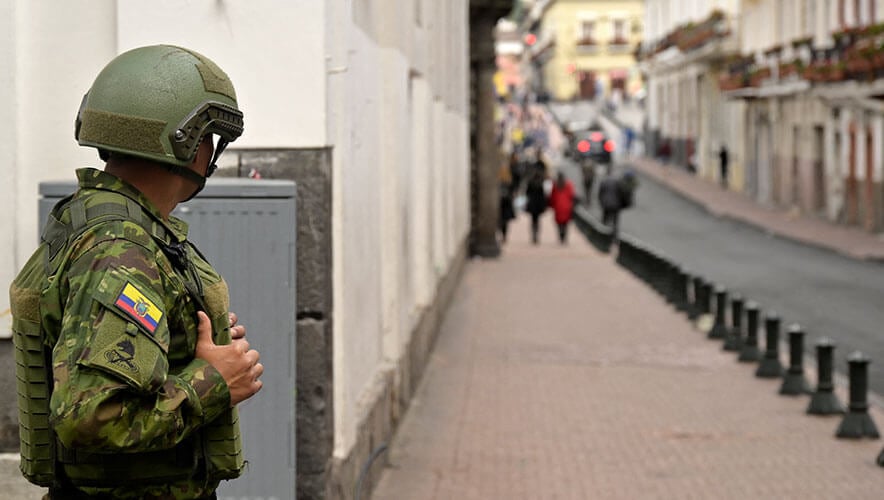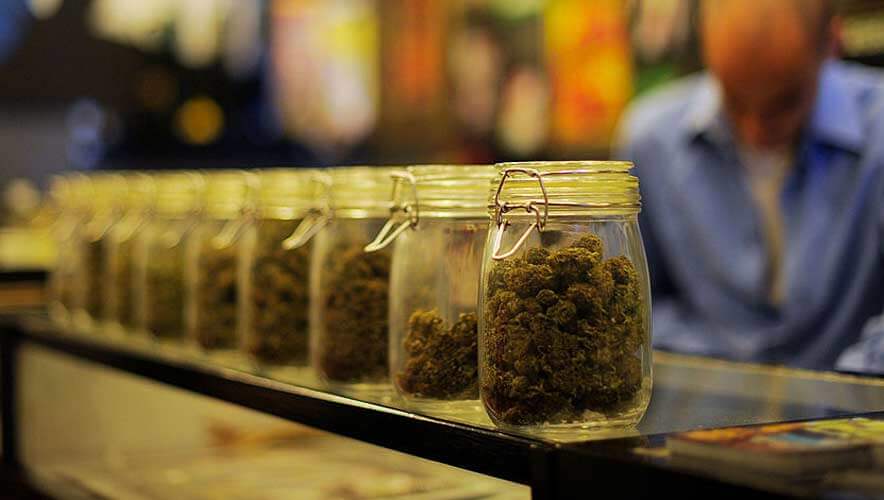Ecuador Declares State of Emergency, Triggering Increased Gang Violence
Ecuador’s President Daniel Noboa declared a state of emergency for the nation on 8 January, triggering several attacks, explosions, kidnappings, and other violent events. The declaration came after a notable gang leader, Adolfo Macias, escaped from a prison in Guayaquil.
Ecuador is now involved in an “internal armed conflict” between government security forces and various criminal organizations, who are accused of generating extreme violence throughout the country.
One of the most recent incidents occurred on Tuesday, when hooded and armed men interrupted a live broadcast from a television studio in Guayaquil, a port city on the western side of the nation.
TC Television’s broadcast was taken over mid-afternoon when the assailants entered the studio, forcing staff at gunpoint to get down on the floor, according to a video posted on social media, while shots and shouts can be heard from somewhere off-camera.
After roughly 15 minutes of the broadcast being taken over and controlled by the assailants, the transmission was cut, according to the Associated Press.
“Ecuador’s police later said they had arrested all the armed men, members of the media outlet had been evacuated, and all staff and hostages were alive,” CNN reported. Although reports vary, no injuries have been officially confirmed. The police added that along with apprehending the 13 assailants, they recovered at least four firearms, two grenades, and some explosives.
After the gunmen attacked the television station, “Noboa issued another decree designating as terrorist groups 20 drug-trafficking gangs operating in the country, and authorizing Ecuador’s military to ‘neutralize’ them within the bounds of international humanitarian law,” the AP reported.
The state of emergency is expected to last for 60 days from Monday, and authorizes government forces to control any threats to public order. A curfew is also in place from 11 p.m. to 5 a.m.
There were also several other violent incidents that occurred on 9 January throughout the nation, including 8 deaths in Guayaquil and two officers killed in Nobol. Additionally, 10 people were arrested in connection to the kidnapping of three police officers. At least seven officers were kidnapped across three separate cities since the state of emergency was issued.
At least 70 people were arrested throughout Ecuador, authorities said on Wednesday morning.
Prisons throughout the country had disturbances earlier this week, too, with at least six incidents occurring on Monday alone and the situations have yet to be resolved. One of the incidents was a prison break, during which another alleged gang leader, Fabricio Colon Pico, escaped along with 38 other inmates.
As for Macias’s escape, which occurred on Sunday, more than 3,000 law enforcement officers have been tasked with finding him. Macias is the leader of one of Ecuador’s more notorious gangs, Los Choneros, which has been connected to drug trafficking activities in Colombia, Mexico, and the United States.
“Intelligence analysts said that the attacks may have been triggered at least in part by a recent investigation into links between drug traffickers, criminal gangs, and political operators, an operation known as Metastasis. About two dozen top security officials and judges were arrested last month for alleged criminal activity benefitting a drug trafficker,” The Washington Post reported.
Recent violence in Ecuador has often been linked to criminal gangs as rival drug trafficking enterprises fight with each other and law enforcement for control of resources, such as smuggling routes. The drug gangs have also dealt out harsh and public violent displays in the streets and prisons as part of their efforts to control these routes. “Hundreds of inmates have been killed in recent years in bloody prison battles, as homicide rates and drug seizures have soared to record levels,” the Post reported.











